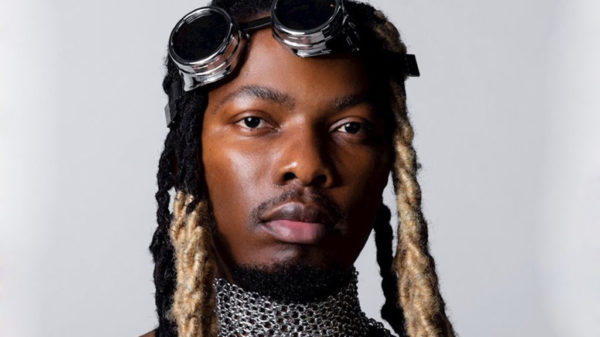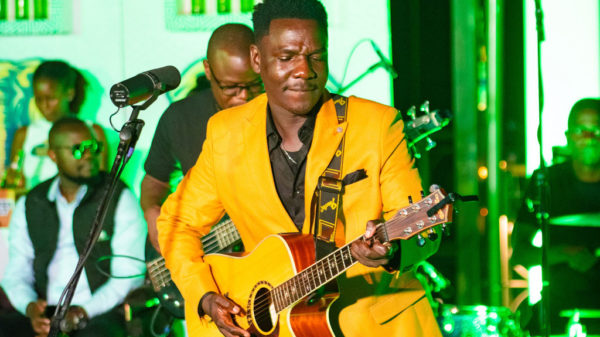
Some of the artists who have contributed in popularising certain words. Cindy(L) Bobiwine (C) Bebecool (R)
Creating new words. Beyonce and her Destiny’s Child bandmates released a song called Bootylicious that became so common it was incorporated into the Oxford English dictionary. On the local scene, our musicians have released songs with words or phrases that have become part of everyday speak, writes Ian Ortega
You all know of those phrases that can’t get off people’s lips. These are phrases that everyone identifies with and uses them to describe their feelings or situations. They originate from all music genres and before you know it all, they are used in everyday speak.
Kataala: Bobi Wine is one artiste whose musical ingenuity resulted in new words and phrases taking over the music industry. If one is to keep a blind eye on the Kataala song’s dirty lyrics, kataala is one phrase that made it’s rounds. Though it was meant to describe Bebe Cool, it ended up as the term around town to describe those dumb fellows who take long to notice things, those who are easily conned and those for whom terms like stupid and dense exist. Yes, suddenly all those fake people became kataalas, an annoying customer became a kataala and so did some bosses.
Kikomando: Though Bobi Wine may not have invented this term, he surely popularised it. He brought up a clear distinction between a rolex and a kikomando. From the hit song (that some artiste claimed he plagiarised), one came to understand that kikomando is that combination of chappati and beans that many bachelors and broke campus girls have adopted as their staple food. To many, it is concretising food for the stomach.
Kiwaani: Have you ever fallen prey to a conman or have you ever seen something that is so fake? Out of the Kiwaani song came a term that described women that were fans of weaves (Brazilian hair to be specific), conmen that played all sorts of mind games to make one let go of their money plus all sorts of fake things. In fact, it replaced the bicupuuli word. Of late, kiwaani has been adopted to mean sun-glasses that is obuwaani. All credit goes to Bobi Wine for popularising the word.
Mazongoto: “Double double….double bed mazongoto.” Those were the lyrics of Dr. Hilderman’s hit song. Mazongoto was interpreted to mean a big bed. For example king-sized mattresses became known as mazongotos and so did double-beds. Some men took it too far and termed people like Straka as mazongotos. The word also applied to mansions and all sorts of gigantic houses.
Paka Last: Rocky Giant may be off the music scene but Warid owes him a lot. Many of the Warid Subscribers use the term without knowing the origins. It originated from the Paka Last a Luga flow hit that encouraged people to work hard till they reach that pinnacle of success. Today, it describes an event that goes on without end, for example it was used by NRM supporters in the previous election, saying that Presidetn Museveni should rule paka last.
Kasepiki: If one is analytical enough, they should realise that most of these terms came in during the times when the music industry experienced lots of ‘beef’. Kasepiki was Bebe Cool’s lyrical reply to Bobi Wine asking him to mind his business. Till today, instead of telling someone to mind their business, you ask them to fan their own kasepiki.
Ndiisa Buuti: It may be an excuse for moving at snail pace as your counterparts are building houses and developing financially but it surely works for many people. Ndiisa buuti literally means to eat using Chinese chop-sticks, but in real sense means doing things at one’s own pace. So in case I am asked to hand in this story and I am past the deadline, I will simply tell my senior “Nze ndiisa buuti sipapa.” In case that girl is asking you to formalise that relationship, simply tell her that you are still scrutinising her by saying, “Honey ndiisa buuti…”
Big Size/Mazzi Mawanvu: Bobi Wine and Bebe Cool have been archrivals for donkey years and their beef has resulted into several songs whose phrases have been incorporated into everyday speak. Big Size and Mazzi Mawanvu (deep water) basically portray a larger than life situation and people use them depending on which artiste they sympathise with.
Namalayo: For the past one year, Mun G has been the king of new terminology. Namalayo simply means that you have achieved it all and you have reached the pinnacle of success in life. It simply shows a state of self-satisfaction and enrichment-call it being full of airs. It is a bragging term that can work in a number of situations. If you work for Sqoop then you can stand up high and declare, “Namalayo.” If Ian is trying to vibe you, then you should also smile in your heart and declare, “Namalayo.” If you work in the OPM, then you can claim to have finished the financial race. If you are reading this, Wamalayo…nyo nyo nyo.
Mbwase: This again goes to Mun G’s new hit of Mbwase. Mbwase means to leave. So as one boards the bus to relocate to Juba, they can say, “Mbwaase. In fact, the term is a verb. It is conjugated as abwaase (he has left), kabwaase (past tense of she dumped me). It is mainly used by lovers to describe the dumping process. Chances are 99.9 percent of you reading this either kubwakaad or your lovers kubwakaad. Some merciless people are now using it at funerals to mean that a person has kicked the bucket.
Emesse: I need to first ask my editor whether this magazine has parental guidance features. Okay, Emesse means a mouse or a rat. For your homework, please go back and listen to Captain Dolla’s Emeese hit song. It has the answers to your questions. I am too young to delve into the explanations and elaborations. (For further notes on this, see page 5).
Bayuda: Well, other terms that resulted from the songs we listen to or were promoted by the songs include bayuda to mean betrayers by Chameleone. Apparently, the Bayuda song was composed by Chameleone to hit at the Goodlyfe duo of Radio and Weasel who were once under his Leone Island Crew. Now everyone who betrays you is a Yuda. It was actually borrowed from the Biblical story of Judas Iscariot who betrayed Jesus. Yuda is Luganda for Judas.
Side dish: In real food terms a side dish refers to small helpings like vegetables that are supposed to make a meal complete. Enter Rabadaba and Cindy who released the song Side Dish referring to extra marital affairs. The song was meant to dissuade married people from having affairs, but it pretty much helped to give mistresses a new name as married men now call their mistresses side dishes.
Bakoowu: Mathias Walukagga released a song titled Bakoowu sometime last year, singing about how Ugandans were fed up of what was going on in the country. From then on, everyone who is tired of a situation says “ndi mukoowu.” There are other variants of the word like twakoowa to describe a group of people who are collectively tired. For example a popular trending topic on the social networks is twakoowa Umeme. (We are tired of Umeme because of the power outages).
Kapapala. Derived from a song of the same title by David Lutalo, the word is used to refer to women who move while shaking their bottoms.
Ebintu. It is a Luganda word to mean “things,” but after Mun G sang a song by the same time, the word is now used to refer to well endowed women.
Ani Akumanyi. Loosely translated, it means who knows you? A song from Grace and Gatimo, it is used to silence people who brag.






























































